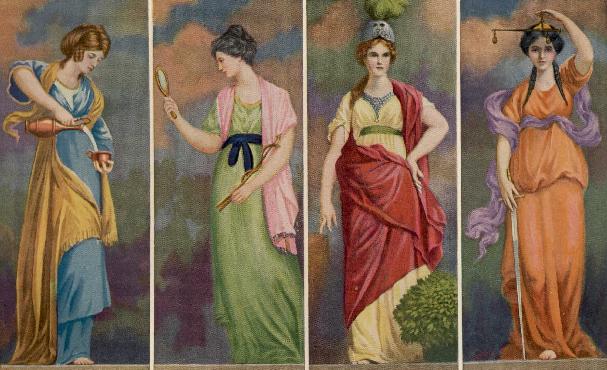 |
| Temperance, Prudence, Fortitude, Justice |
A new trust in God, which is a trust in the unknown overwhelms the soul. God's peace grows. One must, of course, grow into a new trust and a new reliance on Divine Providence. Constantly, one thinks on God and if one's thoughts go away from God, one's thoughts come back to God quickly.
Then, and only then, is one finally living in the life of the virtues. As one is no longer motivated, as St. John of Cross writes, by the seeking of consolations or "satisfaction", one begins to work in and for God alone and not for the ego.
This is the largest weakness of Catholics working in and for the Church. So many do not work through the Dark Night to the point of being free enough to allow the virtues to come to the fore.
One feels and sees one's weaknesses, states St. John and, therefore, one practices fortitude.
One does not see the path clearly, so one lives in faith and hope purely.
One does not need things and no longer pursues the material, so one practices temperance.
One no longer judges others, but only actions, realizing that one is inferior to all other people. This is the virtue of justice.
One in humility sees the world and people more and more as God does and, therefore, lives in the virtue of prudence.
But, to get to this point of actually living the virtues, one must, must, must allow God to purify one's self.
And, one chooses to love freely in the will, willing to love God.
Thus, the cardinal and theological virtues come into being really for the first time in one's life in and through the Dark Night.
If one can think that a person can live in the virtues without this purification, one is lying to one's self. So many activities in the Church come from those who are acting out of egotism and not the virtues. And, so the Church is weakened from within.
to be continued.....
